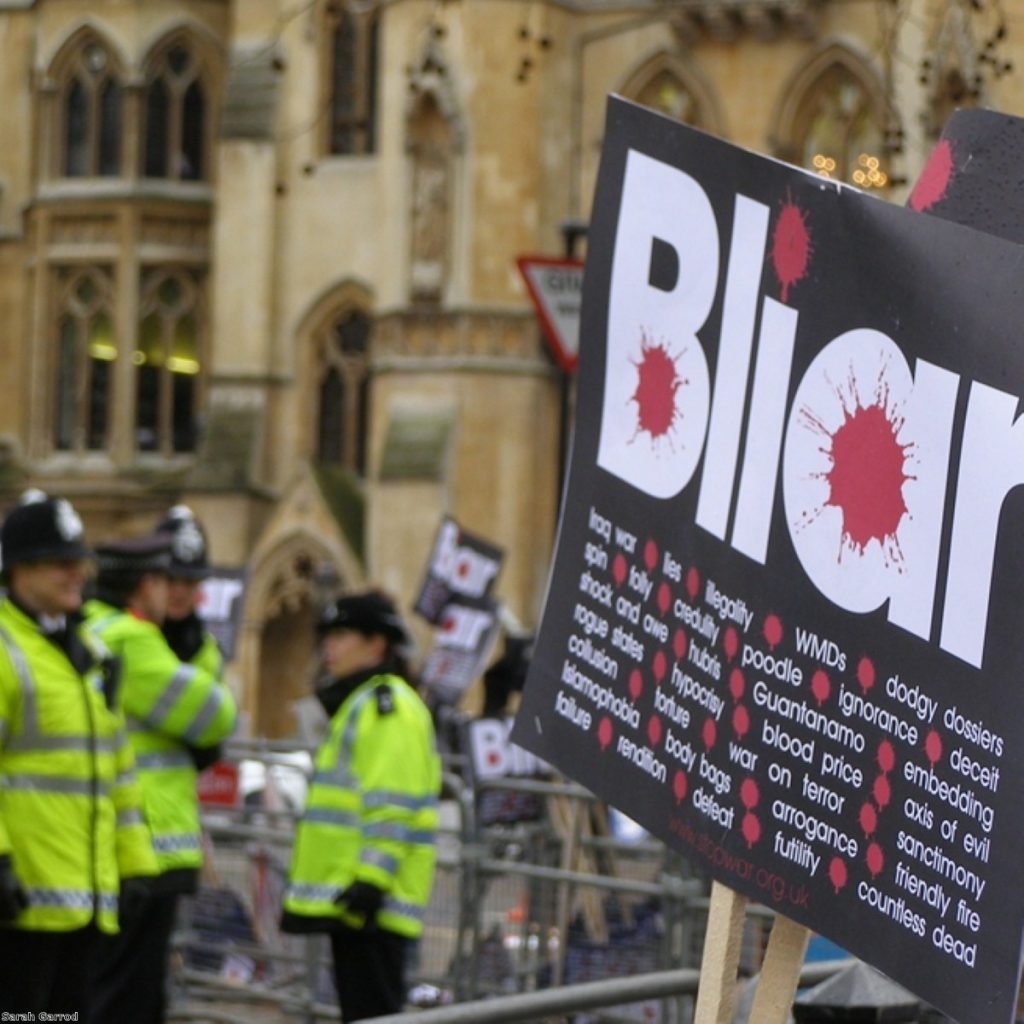Sketch: Blair, hand gestures and all, is back
Evangelical zeal, war-bating and incessant hand gestures: Tony Blair is back.
By Leila Nathoo
You could be forgiven for thinking that you had signed up to the wrong event. Judging by the sedate audience and the unobtrusive surroundings – the cavernous space of the additional viewing facility, the pleasantly read emergency procedure over the tannoy, the cobalt blue carpet; we could all have been getting ready for a conference, or a lecture, or a promotional event for a new product. Well. there was certainly a new product on offer. It was Iran.
The former prime minister used his much anticipated appearance before the Chilcot inquiry as a platform for making the case against Iran. Was this a cruel joke, Mr Blair? We haven’t even got over Iraq yet. It was difficult not to draw the conclusion that Mr Blair held the inquiry in such contempt that not only did he not reveal anything of substance in the first half, but he actually used it as an opportunity to advocate taking action over Iran’s nuclear ambitions. In fact, he even suggested that we were learning lessons from Iraq so we wouldn’t make the same mistakes over Iran. Just hold your horses there, sir, we were thinking…
He stuck to his guns so firmly that he was now pointing them to Iran. His conviction runs deep; even if it did not at the time, it certainly does now seven years on. This was a man skilled in the art of arguing. Polished, confident, tanned and healthy-looking, Mr Blair was in control, save for a few initial nerves. We were reminded at the start that “the inquiry is not a trial”, and indeed it was not. Mr Blair frequently read from his past speeches to prove the consistency of his position and often used the phrases like ‘what’s really important is’ and ‘it’s really worth noting that’ to frame the main points that he wanted to get across. One fellow viewer said he was like a cat on a hot tin roof. He was not so much evasive as nimble.
It was frustrating to see that the questioning did not penetrate his deeply-held convictions. One viewer in the spillover hall had had enough barely an hour in, standing up on his chair and announcing: “I can’t stomach this any more. I’m going to go and make a non-violent citizens arrest”, before he was hushed and bundled out. But you could see early on that there was not going to be much progress beyond the repeatedly stated position: he did what he thought was right at the time and he remains convinced that it was the right decision. Blair probably thinks the same thing.
He sometimes, rather patronisingly, tried to put the panel in the mindset of the prime minister, saying to them “you think to yourself” or “what you do is”. The gestures and mannerisms were familiar, taking us back to that time when he was prime minister. But Blair wasn’t there with us. He was looking at the whole decade, referring to Butler or Hutton or “what we know now” to vindicate his views. Even when confronted with the absence of WMDs, Blair still maintained that Saddam was never going to cooperate with UN inspectors and would have been a much greater threat today – the “2010 question”, as he put it.
There was no reflection or repentance on this rainy January day in Westminster. For ardent critics, Blair’s appearance could not satisfy unless he admitted to all accusations and reneged on all his prior opinions. He was never going to do that, and he didn’t. But despite that, the event is important – Tony Blair publicly answering questions about the war that defined his premiership, with the world looking on. What’s worrying is that he has very publicly made it clear that, were he prime minister now, he would be viewing Iran in the same way as he saw Iraq. Maybe today’s leaders think likewise. If so, I’ll see you in ten year’s time, after the Iran inquiry.





-01.png)